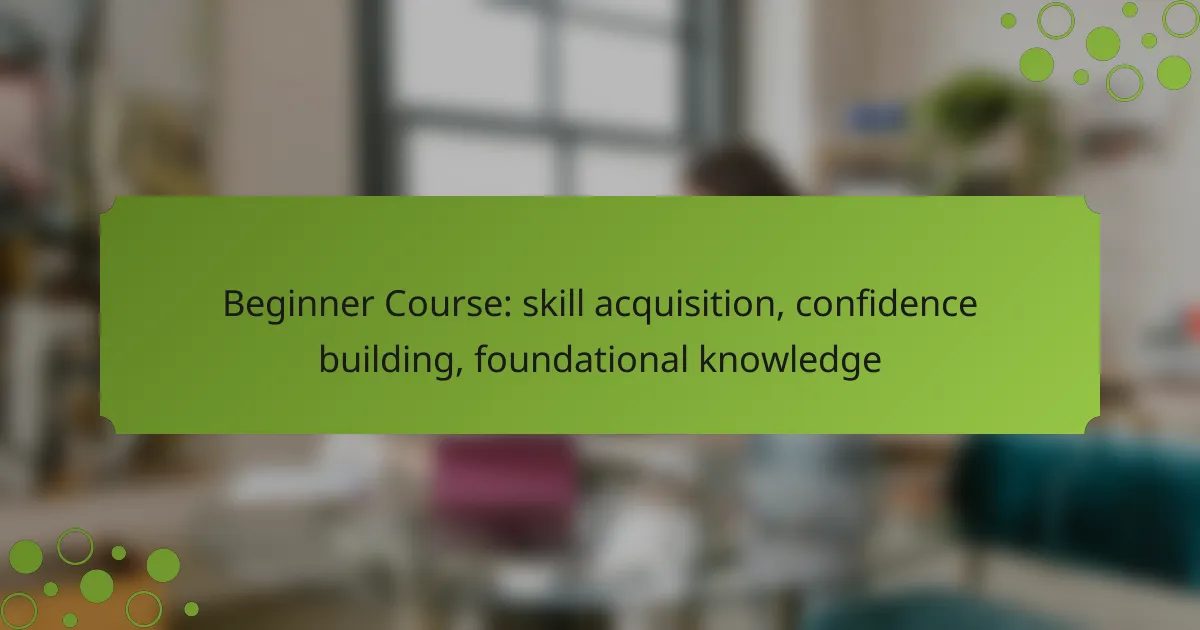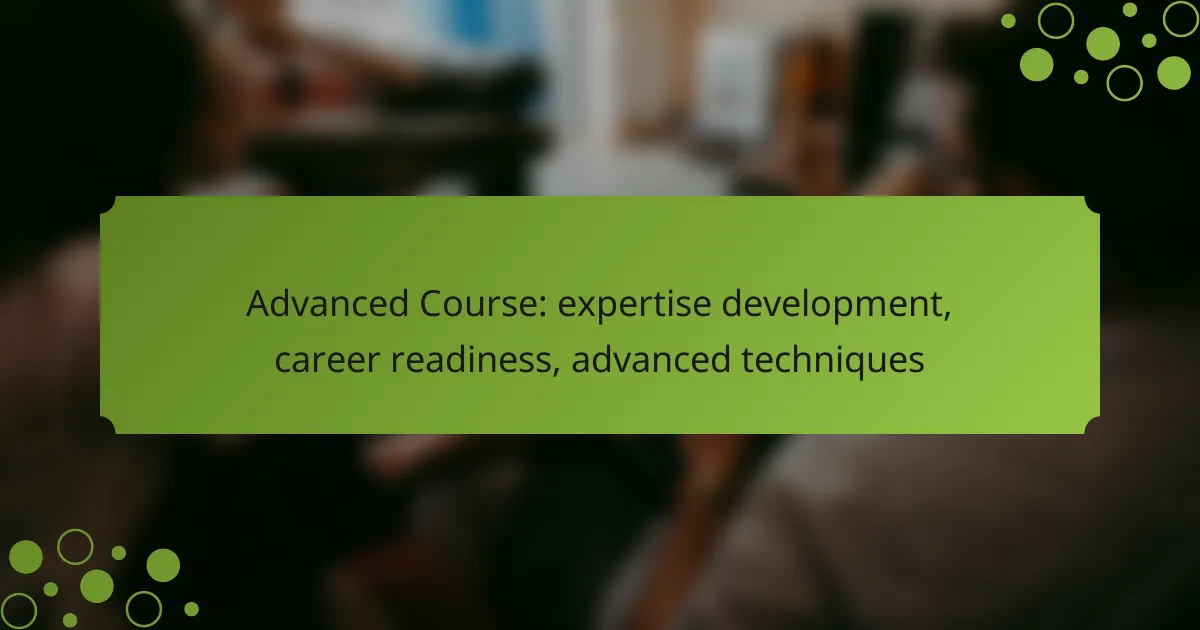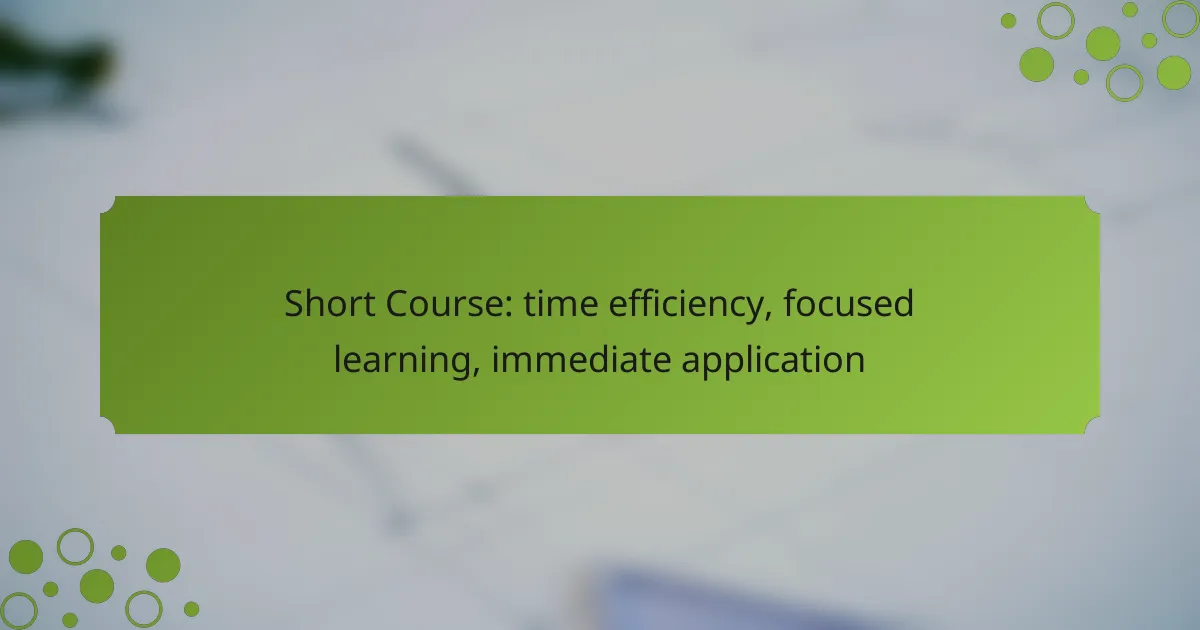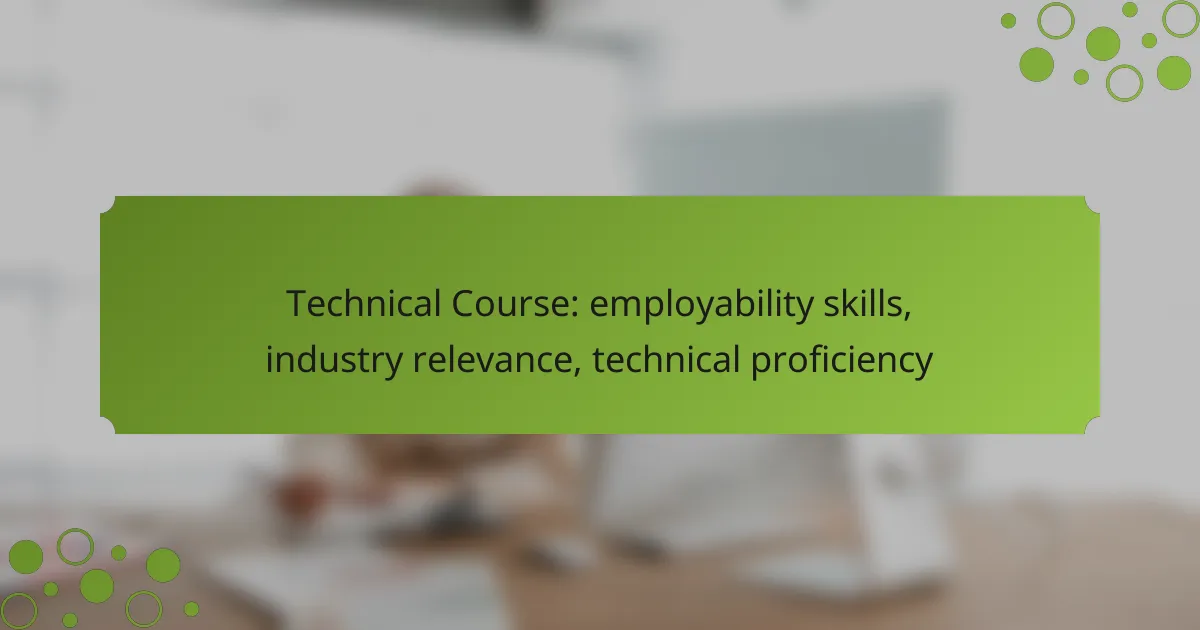Embarking on a beginner course focused on skill acquisition can be a transformative experience, providing the foundational knowledge necessary for personal and professional growth. Platforms like Coursera, Udemy, and LinkedIn Learning offer structured learning environments that not only enhance your skills but also build confidence through interactive content and supportive feedback. By mastering essential concepts, you set the stage for further development in your chosen field.

What are the best online courses for skill acquisition in Canada?
The best online courses for skill acquisition in Canada include platforms that offer a variety of learning opportunities tailored to different skill sets. Popular options such as Coursera, Udemy, and LinkedIn Learning provide courses that cater to beginners seeking foundational knowledge and confidence in their chosen fields.
Coursera: Skill Development Courses
Coursera partners with universities and organizations to offer a wide range of skill development courses. These courses often include video lectures, quizzes, and peer-reviewed assignments, making them interactive and comprehensive. Many courses are available for free, with an option to pay for a certificate upon completion.
When selecting a course on Coursera, consider the subject matter and the institution offering it. Popular categories include data science, business, and personal development. Look for courses that have high ratings and positive reviews to ensure quality learning.
Udemy: Practical Skills Training
Udemy focuses on practical skills training, offering thousands of courses across various disciplines. Unlike Coursera, Udemy courses are created by individual instructors, which allows for a diverse range of teaching styles and content. Prices vary, but frequent discounts can make courses affordable.
To maximize your learning on Udemy, check the course syllabus and preview available lectures. Look for courses with a high number of enrollments and positive feedback. This can help you identify effective courses that align with your goals.
LinkedIn Learning: Professional Growth Courses
LinkedIn Learning provides professional growth courses aimed at enhancing career skills. With a subscription model, users gain access to a vast library of courses covering topics like project management, software development, and creative skills. This platform is particularly beneficial for those looking to improve their employability.
When using LinkedIn Learning, take advantage of personalized course recommendations based on your profile and interests. Additionally, completing courses can enhance your LinkedIn profile, showcasing your new skills to potential employers. Consider starting with beginner courses to build a solid foundation before advancing to more complex topics.
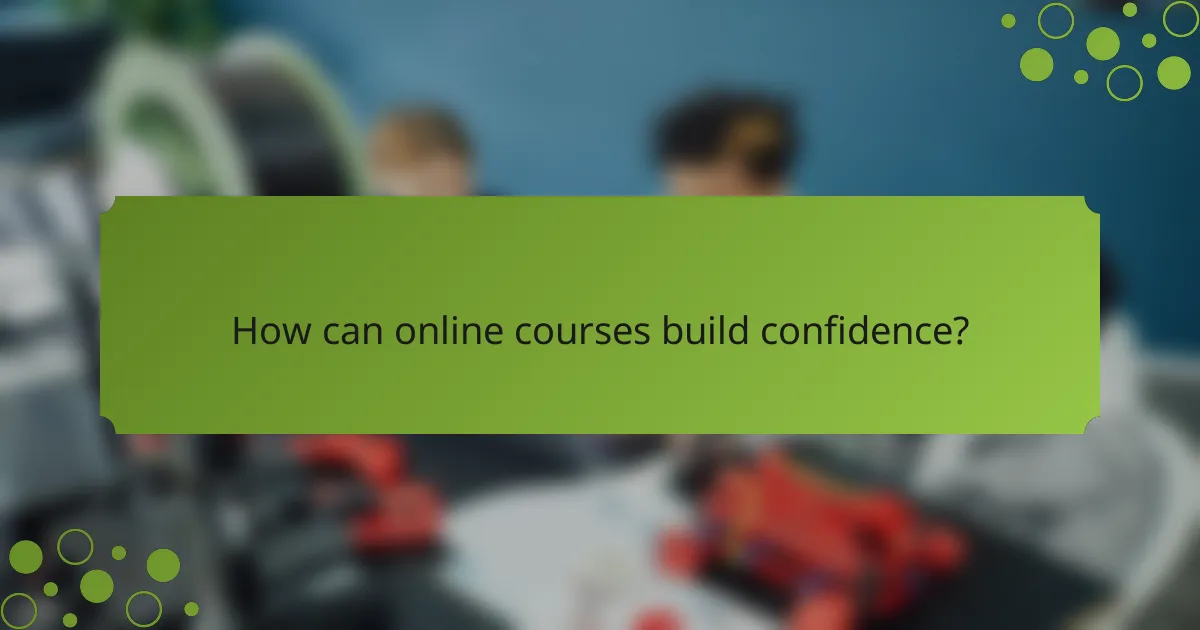
How can online courses build confidence?
Online courses can significantly enhance confidence by providing structured learning environments that promote skill acquisition and mastery. Through interactive content and supportive feedback, learners can gradually build their knowledge and self-assurance in various subjects.
Interactive Learning Modules
Interactive learning modules engage students through hands-on activities, quizzes, and simulations that reinforce foundational knowledge. This active participation helps learners retain information better and feel more competent in their abilities.
For example, a course on coding might include coding challenges where students can apply what they’ve learned in real-time. This immediate application fosters a sense of achievement, boosting confidence as learners see their progress firsthand.
Peer Feedback Mechanisms
Peer feedback mechanisms allow students to share their work and receive constructive criticism from fellow learners. This collaborative approach not only enhances understanding but also builds a supportive community where individuals feel valued and encouraged.
In practice, platforms may facilitate peer reviews or discussion forums where students can ask questions and offer insights. Engaging with peers can help learners recognize their strengths and areas for improvement, further solidifying their confidence as they navigate their educational journey.

What foundational knowledge do beginners need?
Beginners need a solid grasp of basic concepts and essential skills relevant to their field. This foundational knowledge builds confidence and serves as a springboard for further learning and career development.
Basic Concepts in Key Subjects
Understanding fundamental concepts in key subjects is crucial for beginners. For instance, in technology, grasping basic programming principles or data structures can significantly enhance problem-solving abilities. In business, knowledge of marketing fundamentals or financial literacy is essential for making informed decisions.
Beginners should focus on core principles that apply across various fields. This includes critical thinking, effective communication, and basic project management skills. These concepts not only aid in immediate tasks but also lay the groundwork for advanced learning.
Essential Skills for Career Advancement
Essential skills for career advancement include both technical and soft skills. Technical skills, such as proficiency in specific software or tools relevant to the industry, are often prerequisites for job opportunities. Soft skills, like teamwork and adaptability, are equally important as they enhance workplace dynamics.
To build these skills, beginners should seek practical experiences, such as internships or volunteer opportunities. Networking and mentorship can also provide valuable insights and guidance. Regularly updating skills through online courses or workshops can keep beginners competitive in their chosen fields.

What prerequisites should I consider before enrolling?
Before enrolling in a beginner course, consider your current skill levels and what you hope to achieve. Understanding these prerequisites will help you select a course that aligns with your foundational knowledge and confidence-building needs.
Assessing Current Skill Levels
Start by evaluating your existing skills related to the course topic. This can involve self-reflection or taking a simple skills assessment test. Knowing whether you are a complete novice or have some experience will guide your course selection.
Consider creating a list of your strengths and weaknesses. For instance, if you’re interested in a language course, assess your vocabulary, grammar knowledge, and speaking ability. This will help you identify the right starting point.
Identifying Learning Goals
Clearly define what you want to accomplish by taking the course. Are you looking to gain basic knowledge, improve a specific skill, or prepare for a certification? Setting specific, measurable goals will enhance your focus and motivation.
Write down your goals and prioritize them. For example, if your aim is to become proficient in coding, you might focus first on understanding programming fundamentals before tackling more complex projects. This structured approach will keep you on track throughout the learning process.

How do I choose the right course for my needs?
To choose the right course for your needs, identify your specific goals and the skills you want to acquire. Consider factors such as course content, instructor qualifications, and student feedback to ensure the course aligns with your learning objectives.
Evaluating Course Content
When evaluating course content, review the syllabus to ensure it covers the topics you want to learn. Look for courses that offer a mix of theoretical knowledge and practical applications, as this balance can enhance your understanding and skill acquisition.
Consider the format of the course as well. Some courses may offer hands-on projects, while others focus on lectures or readings. Choose a format that suits your learning style, whether it’s in-person, online, or hybrid.
Comparing Instructor Credentials
Instructor credentials are crucial in determining the quality of a course. Look for instructors with relevant experience in the field, advanced degrees, or recognized certifications. Their background can significantly impact the depth of knowledge you gain.
Additionally, consider the instructor’s teaching style and approach. Some may prioritize interactive learning, while others might focus on traditional lectures. Research their previous courses or watch introductory videos to gauge their effectiveness.
Reading Student Reviews
Student reviews provide insights into the course experience and outcomes. Look for feedback on course content, instructor effectiveness, and overall satisfaction. Reviews can highlight strengths and weaknesses that may not be apparent from the course description alone.
Pay attention to the number of reviews and the overall rating. A course with a high volume of positive reviews is often a good indicator of quality. However, be cautious of overly positive or negative reviews that may not reflect the average experience.

What are the costs associated with online courses?
The costs associated with online courses can vary widely depending on the platform, course length, and subject matter. Generally, you can expect to pay anywhere from a few dollars to several thousand dollars for comprehensive programs.
Tuition Fees for Popular Platforms
Tuition fees for online courses differ significantly across platforms. For instance, platforms like Coursera and edX often offer courses ranging from free to around $300 for a single course, while specialized programs or degrees can cost upwards of $2,000. Udemy typically prices its courses between $10 and $200, depending on the instructor and content.
It’s essential to consider the value of the course content and the credentials of the instructors when evaluating these fees. Some platforms also offer subscription models, allowing access to multiple courses for a monthly fee, which can be more economical for learners looking to take several classes.
Available Financial Aid Options
Many online learning platforms provide financial aid options to help reduce the cost of courses. For example, Coursera offers financial aid for learners who demonstrate need, allowing them to access courses for free or at a significantly reduced price. Similarly, edX has a financial assistance program that can cover up to 90% of course fees.
Additionally, some employers may offer tuition reimbursement programs for employees pursuing online education. It’s advisable to check with your employer about any available benefits before enrolling in a course.
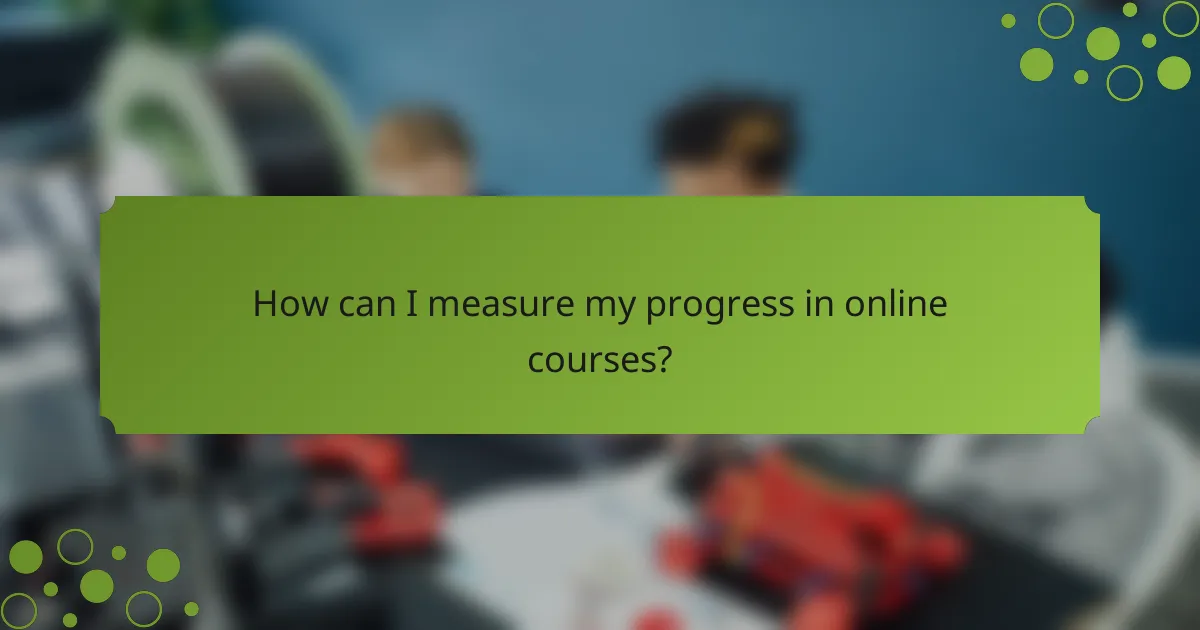
How can I measure my progress in online courses?
Measuring progress in online courses involves tracking skill acquisition, assessing performance through course evaluations, and reflecting on personal growth. Regularly reviewing your achievements and areas for improvement can enhance your learning experience and boost confidence.
Tracking Skill Development
To effectively track skill development, set clear learning objectives at the outset of your course. Break these objectives into smaller milestones, which can help you gauge your progress over time. For example, if you are learning a new language, aim to master basic vocabulary before progressing to conversational skills.
Keep a journal or digital log to document your learning journey. Note down what you have learned, challenges faced, and skills acquired. This not only provides a record of your progress but also helps identify areas needing more focus.
Utilizing Course Assessments
Course assessments, such as quizzes, assignments, and projects, are essential tools for measuring your understanding of the material. Regularly completing these assessments can provide immediate feedback on your grasp of the subject matter. Aim to complete assessments promptly to reinforce learning and retention.
Additionally, review the feedback provided on your assessments to identify strengths and weaknesses. This can guide your study efforts and help you prioritize areas for improvement. Consider retaking quizzes or revisiting assignments to solidify your knowledge and track your progress over time.

What are the benefits of online learning for beginners?
Online learning offers beginners flexibility, accessibility, and a wide range of resources to build foundational knowledge. It allows individuals to learn at their own pace and access materials from anywhere, fostering skill acquisition and confidence building.
Flexibility and Convenience
Online learning provides the flexibility to study whenever and wherever suits the learner best. This convenience is particularly beneficial for beginners who may have other commitments, such as work or family. They can fit their studies into their schedules without the constraints of traditional classroom settings.
For instance, a beginner can choose to engage with course materials in the early morning or late evening, allowing for a personalized learning experience. This adaptability often leads to higher retention rates and a more enjoyable learning process.
Access to Diverse Resources
Beginners benefit from a vast array of online resources, including videos, articles, and interactive tools. These resources cater to different learning styles, making it easier for individuals to grasp new concepts. For example, visual learners can utilize video tutorials, while those who prefer reading can access comprehensive written guides.
Many platforms also offer forums and community support, enabling beginners to ask questions and share experiences. This collaborative environment can enhance understanding and motivation, making the learning journey more engaging.
Cost-Effectiveness
Online learning often comes at a lower cost compared to traditional education. Many courses are available for free or at a fraction of the price of in-person classes. This affordability makes it easier for beginners to explore new subjects without significant financial investment.
Additionally, learners can save on commuting and material costs, further enhancing the overall value of online education. Beginners can often find high-quality courses for under $100, making it an accessible option for skill development.
Self-Paced Learning
One of the key advantages of online learning is the ability to learn at one’s own pace. Beginners can take the time they need to fully understand a topic before moving on, which can lead to greater confidence and mastery of the material. This approach reduces the pressure often felt in traditional classroom settings.
For example, a beginner struggling with a particular concept can spend additional time reviewing it without the fear of falling behind. This self-directed learning fosters independence and encourages a deeper engagement with the subject matter.
